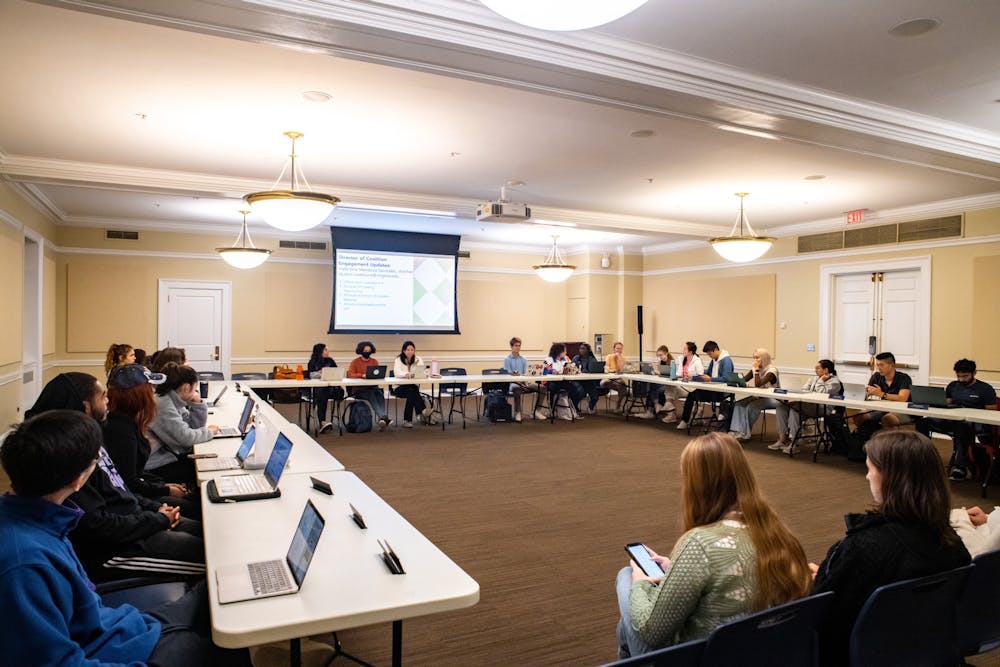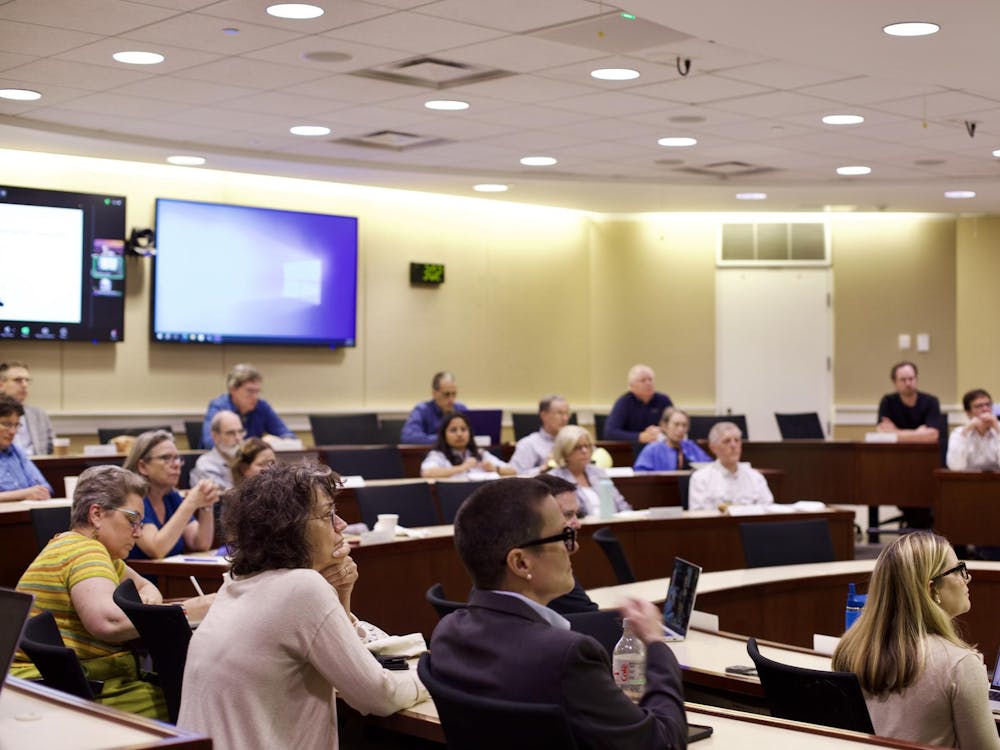Student Council’s representative body called for increased influence for the student member of the Board of Visitors, approving a resolution calling for the state of Virginia to allow the student member to have a voting role during Tuesday’s meeting. The representative body also approved an annual budget amendment requesting a net increase of $925.
Holly Sims, vice president for administration and graduate Batten student, sponsored the budget amendment bill calling for $925 more in Student Activity Fee funds towards the Council’s annual budget. The SAF, a $58 fee included in tuition that goes towards supporting student organizations funds, currently accounts for about 95 percent of Student Council’s $317,787 annual budget.
The amended budget sees $1,750 more allocated towards the Safety and Wellness Committee to add disordered eating resources for students to the Student Council free store, including informational books and nutritional label covers. This request for increased funding will pull from the remaining surplus of SAF funding that is not currently part of Student Council’s budget.
While the amendment requests a net increase of SAF funds, it also includes smaller funding cuts in other areas. The marketing committee will receive $360 less, since it no longer needs to pay for an Adobe subscription due to lack of use, along with a $250 cut originally allocated to pay a photographer for leadership photos.
While this amendment will ultimately need to be approved by the Student Activities Committee — a group under the guidance of the University vice president and chief student affairs officer — Sims said this process will take place over email rather than the usual process of a formal meeting between the SAC and the student council executive board.
Representatives also approved a resolution calling for increased influence and autonomy for the student member of the Board of Visitors. The resolution, sponsored by graduate College student Rep. Benvin Lozada, calls for the student representative to be treated as a voting member and be appointed by a University-wide student election.
“Given that the Board is overseeing some of the most critical functions of the University, everything ranging from how CIOs are funded to the long term strategic vision of the University, I believe that it's high time that we take a stand to make sure that students are getting their representation on the Board of Visitors,” Lozada said.
Current Virginia state law limits the role of the student member of the Board, stating that the board of visitors for any public higher education institution may only include students in nonvoting, advisory roles. However, no laws describe how student representatives can be elected to boards. James Madison University elects its representative through a student election.
The Board currently has its own internal application process for selecting its student members. While Lozada said the current selection process and nonvoting status limits the student member’s power, Lillian Rojas, current student member of the Board and fourth-year Batten representative, disagreed.
“[Myself and all the student members before me] have all successfully advocated for the views, concerns and aspirations of this diverse student body, regardless of whether or not we have the power to vote or if we were elected by the student body,” Rojas said.
Rojas said that while her role is more behind the scenes compared to other student leaders at the University, she still works towards the same initiatives to represent the student body as a whole. In response to the call for a University-wide student election to elect the student representative, Rojas noted that last year’s student-wide elections run by the University Board of Elections saw a voter turnout of less than 20 percent.
Rojas ultimately abstained from voting on this resolution, saying that she did not want her vote to influence others and did not think it was appropriate to vote on the matter.
“'It’s not necessarily my role right now to say yes or no on this — that's an end of the term decision when I have fully been in the role for a while,” Rojas said.
Rojas was elected into the role March 3 and officially began her term June 1. Her term will last until May 31, 2024. The bill passed with 12 in favor, 2 agains and 11 abstaining.
Representatives also tabled a bill to add a formal process for changing Student Activities Fees into Student Council’s bylaws. The bill would add a formal process where Student Council can request changes to the SAF whenever they see it necessary. Sims successfully passed a $1 increase to the SAF this semester and said this bill will give guidance to future administrations looking to do the same. This written process directly mirrors the process that Sims used to pass this year’s SAF increase.
“It will be good for future [executive committees] and future student councils to know what they're doing, and to make sure that students have an opportunity to have a say in the SAF change,” Sims said.
The bill includes several criteria for implementing a SAF change. Changes must be proposed by an executive board member, advertised by Student Council with a three week public comment period and passed by a two thirds majority of the representative body.
Due to existing Student Council rules that all bylaw bills must be tabled once before a final vote, representatives voted to table the bill for reconsideration next week.
Student Council’s general body also approved a bill giving CIO status to all five student organizations who spoke at the meeting, and 11 additional organizations.
Because the budget now covers the entire academic year instead of separate semesters, Sims has planned amendment hearings so representatives can submit and vote on requests in a more efficient manner. The next dates Student Council will hear legislation on budget amendments are Nov. 28, Feb. 6 and Mar. 12.
Student Council’s general body will convene again Tuesday at 6:30 p.m. in the Newcomb South Meeting Room.







